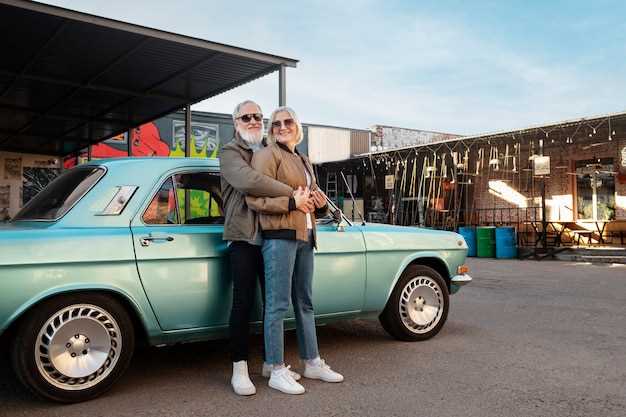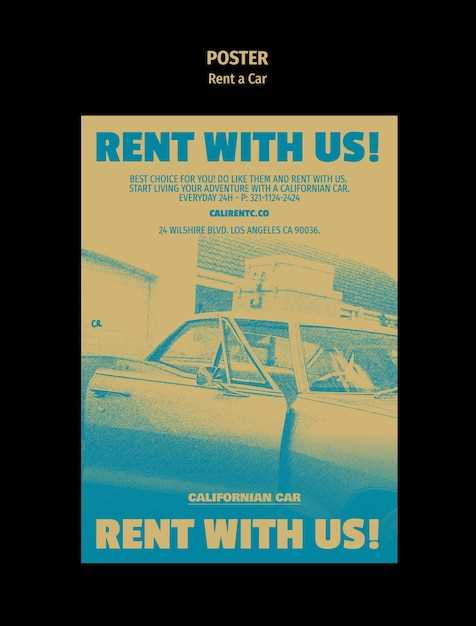
Selling classic cars can be both an exciting and challenging endeavor, especially when navigating the international market. Whether you are a seasoned collector or a first-time seller, understanding the nuances of this unique landscape is crucial for success. The allure of vintage automobiles draws enthusiasts from all corners of the globe, making it essential to approach the selling process with a well-informed strategy.
When it comes to selling cars internationally, several factors must be taken into account to maximize your chances of reaching a wider audience. From understanding regulations and shipping logistics to effectively marketing your vehicle, every detail can influence the outcome of your sale. Classic cars often come with a rich history, and successfully conveying that story to potential buyers enhances the appeal of the vehicle.
In this guide, we will explore essential tips and tricks to help you navigate the international vintage car market. By focusing on key aspects such as valuation, presentation, and legal considerations, you can ensure that your classic car stands out in a crowded marketplace. Join us as we delve into the world of vintage car sales, equipping you with the knowledge required to achieve a successful transaction.
Evaluating the True Value of Classic Cars for Sale

Determining the true value of classic cars for sale requires a careful analysis of various factors that contribute to their worth. The first step is to conduct thorough research on the specific make and model of the car. Understanding its history, production numbers, and any unique features can significantly impact its market value.
Next, consider the car’s condition. Classic cars that are well-maintained and exhibit minimal wear generally command higher prices. Ensure to inspect the body, engine, and interior for any signs of damage or modifications, as these can affect overall desirability. Restoration work can also increase the value, but it needs to be performed to high standards, using original parts whenever possible.
Another critical aspect is the car’s provenance. A classic car with a documented history, including previous ownership, awards, or participation in significant events, will usually attract more interest from buyers. This history can be verified through records, photographs, or certificates from recognized organizations.
Market trends play a vital role in pricing. The value of classic cars fluctuates based on demand, economic conditions, and emerging interests among collectors. Keeping an eye on auction results and sales listings can provide insights into fair pricing for similar vehicles.
Finally, obtaining a professional appraisal can be beneficial, especially for rare or high-value cars. Appraisers can provide an expert opinion based on comprehensive criteria, reinforcing your asking price when selling.
Navigating International Export Regulations for Vintage Vehicles
When selling classic cars internationally, understanding export regulations is crucial. Each country has distinct laws governing the export of vehicles, particularly vintage models. Begin by researching the regulations in your home country regarding the export of classic cars; some nations may require specific documentation and inspections prior to shipping.
Documentation is key to a smooth export process. Common requirements include a bill of sale, title transfer documents, and proof of ownership. Ensure you gather these documents in advance to avoid delays. Be aware that some countries may also necessitate a declaration of the vehicle’s compliance with local emissions standards, especially for older cars that may not meet modern regulations.
Consulting with logistics companies experienced in vintage vehicle exports can help navigate the complexities of international shipping. They can provide insights into customs duties, tariffs, and necessary paperwork based on the destination country. Obtaining a clear understanding of these aspects will aid in pricing your classic cars competitively for the international market.
Furthermore, familiarize yourself with the import regulations of the buyer’s country. This can influence the sale agreement and the total cost for the buyer. Ensure the buyer understands what additional fees, taxes, or modifications may be needed upon arrival.
Lastly, be prepared for potential delays. Export regulations and inspections can vary greatly between countries, and it’s vital to stay adaptable. By thorough preparation and compliance with international export regulations, the process of selling classic cars can be more efficient and successful.
Choosing the Right Platforms for Selling Classic Cars Abroad

Selling classic cars on an international scale requires a strategic approach to select the right platforms that will maximize visibility and interest. Here are some key considerations to keep in mind:
- Specialized Classic Car Websites: Platforms such as ClassicCars.com, Hemmings, and Bring a Trailer cater specifically to enthusiasts, ensuring that your classic car reaches the right audience.
- International Auction Houses: Auction formats can generate excitement and competition. Consider reputable auction houses like RM Sotheby’s and Bonhams that have international reach and specialize in classic vehicles.
- Social Media: Utilize platforms like Facebook Marketplace and Instagram, which have dedicated groups and hashtags for classic cars. Engaging visuals can attract a global audience.
- Online Classifieds: Websites such as eBay Motors and Craigslist can also be effective for reaching prospective buyers around the world. Ensure you target the right geographical areas.
Before choosing a platform, assess the following:
- Target Audience: Identify where classic car enthusiasts are most active. Different platforms cater to various demographics.
- Fees and Commission: Understand the cost associated with each platform. Some may charge listing fees, while others might take a commission on the sale.
- Transaction Security: Ensure the platform offers secure payment options and seller protections to avoid potential scams.
- International Shipping Options: Consider how the platform facilitates overseas transactions, including shipping logistics and customs requirements for classic cars.
By carefully selecting the right platforms, you can significantly enhance your chances of making successful international sales of classic cars.

